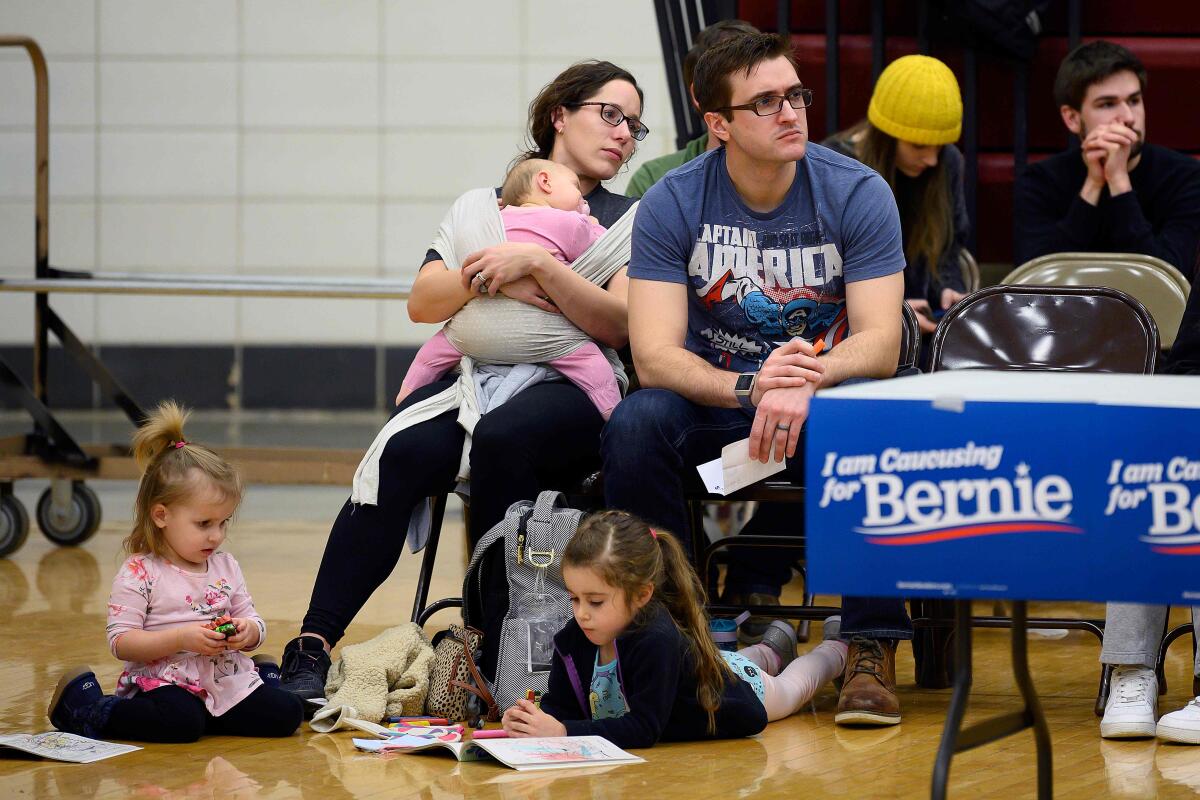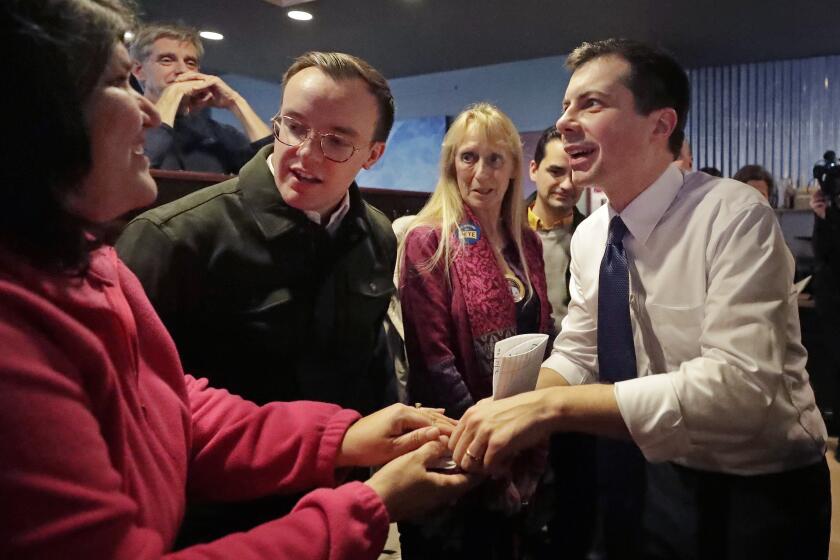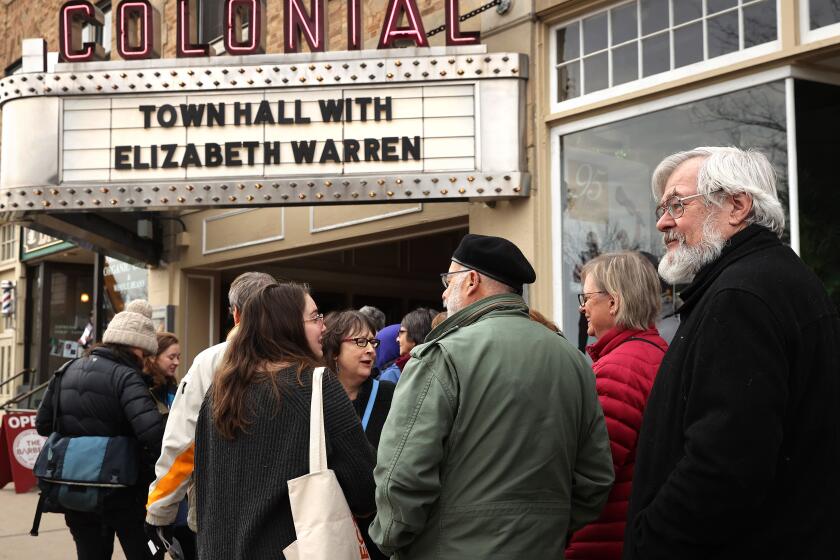Nevada dumps election app at heart of Iowa caucus breakdown

The software vendor at the heart of Iowa’s presidential vote-counting fiasco was dumped Tuesday as the administrator of the upcoming Nevada caucuses.
The party abandoned the app supplied by Shadow Inc. as questions emerged about whether the Democratic Party can run the Feb. 22 caucuses in Nevada without the same kind of trouble that botched the tabulation in Iowa.
The Nevada caucuses are even more byzantine than Iowa’s, offering ample opportunity for confusion and software failures. Nevada Democratic leaders were scrambling Tuesday to find a new way to tally the results before early voting begins Feb. 15.
“We will not be employing the same app or vendor used in the Iowa caucus,” state party Chairman William McCurdy II said. “We had already developed a series of backups and redundant reporting systems, and are currently evaluating the best path forward.”
The Nevada state party paid Shadow Inc. $58,000 for “technology services” in August. The Democratic National Committee approved the state party’s plan for running the caucuses and counting the votes. It also signed off on Iowa’s.
“It is clear that the app in question did not function adequately,” DNC Chairman Tom Perez said. “It will not be used in Nevada or anywhere else during the primary election process.”
Nevada is the third state — and the first in the West — to hold a Democratic presidential nominating contest, following Iowa and next week’s New Hampshire primary.
Nevada’s caucuses are similar to Iowa’s. Party voters gather in rooms around the state for a first round of voting for a presidential nominee.
In Iowa, the candidates who fall below a 15% threshold are deemed not “viable.” Their supporters can then switch to one of the viable candidates for the second and final round.
For the first time, the party required each of Iowa’s more than 1,600 precincts to report three results to the state party: The first round, the final round and the delegates awarded.
Precinct managers were supposed to download the app from Shadow Inc. on their mobile phones and use it to send in results, but in many cases it malfunctioned.
“We sincerely regret the delay in the reporting of the results of last night’s Iowa caucuses and the uncertainty it has caused to the candidates, their campaigns, and Democratic caucus-goers,” Shadow Inc. said Tuesday on Twitter.
Many precinct leaders tried to report their results by phone instead, but were left on hold in some cases for more than an hour.
Then-Senate Democratic leader Harry Reid of Nevada secured the state’s early spot on the Democratic calendar in 2008. In that year’s contest, the fight between Hillary Clinton and Barack Obama escalated after Clinton allies sued to block the placement of some caucus sites at casino resorts on the Las Vegas Strip.
The Obama campaign, backed by the Culinary Union Local 226 in Las Vegas, which represents many workers on the Strip, accused the Clinton forces of trying to suppress the workers’ vote. A judge upheld the caucus sites. Clinton initially appeared to be the winner, 51% to 45%. But a party formula ultimately gave Obama 14 delegates for the presidential nomination and Clinton 11.
Eight years later, Clinton defeated Vermont Sen. Bernie Sanders in Nevada, but controversy struck again. At the state Democratic convention, Sanders supporters were accused of screaming profanities at the party’s leader, rushing the stage and throwing chairs. The clash came as Sanders was trying to maximize his share of Nevada delegates to the national convention.
“I can’t imagine being in the Iowa Democratic Party taking calls from more than 1,600 precincts reading three different counts for multiple candidates,” said Bob Mulholland, a DNC member from California. “That’s impossible.”
First Democratic results are finally released as Iowa’s debacle of a caucus extends into a second day.
Nevada has about 2,000 precincts. The viability threshold for candidates in the first round of voting varies widely among the precincts based on a convoluted formula.
A new feature for 2020 in Nevada will be four days of early voting at 80 stations across the state. The state party was planning to use software that it has not publicly identified to transfer secret results from early voting onto iPads and other tablets used by precinct managers on caucus day. It’s unclear whether Shadow was the vendor for that software.
After Iowa’s caucuses fail to winnow the Democratic field, New Hampshire’s Feb. 11 primary is even more important, and candidates flock to the state.
Even before it adopted technology to tally caucus results, Nevada did not have the capacity to run its caucuses without help from party leaders from other states. In 2008, one of them was Mulholland. In the Reno precinct where he oversaw the voting, Clinton and Obama finished dead even. Following Nevada party rules, he used a deck of cards to break the tie.
“The Obama volunteer and the Clinton volunteer each pulled a card from the deck in my hands,” he recalled. “They turned the cards over and Obama won the tie.”
Finnegan is a Times staff writer and John is a special correspondent. Times staff writer Chris Keller contributed to this report.
More to Read
Get the L.A. Times Politics newsletter
Deeply reported insights into legislation, politics and policy from Sacramento, Washington and beyond. In your inbox three times per week.
You may occasionally receive promotional content from the Los Angeles Times.













